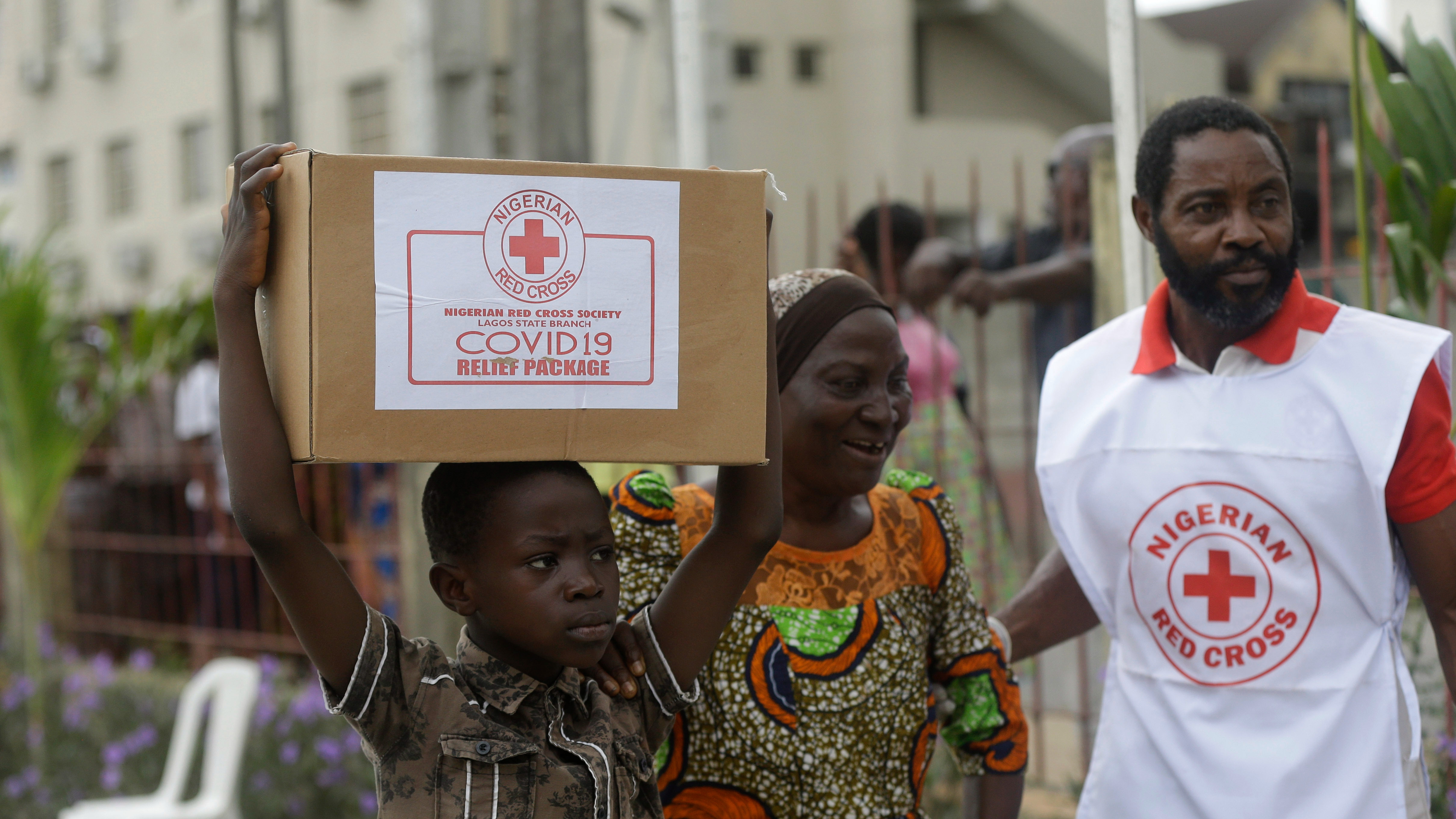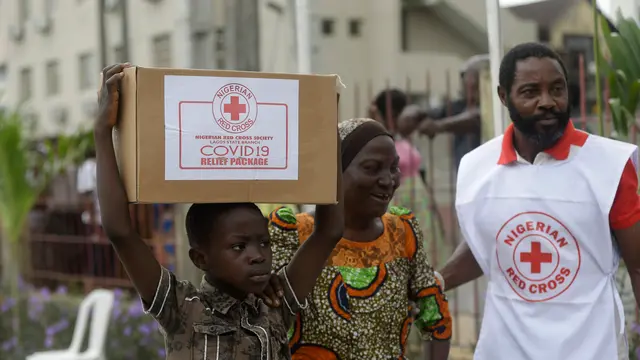Nigeria began easing restrictions on Monday in Abuja, its capital, and Lagos, its largest city, marking the reopening of Africa's biggest economy after more than four weeks of lockdown.
Nigeria has reported 2,558 confirmed cases of the new coronavirus and 87 deaths since recording its first case at the end of February, a much lower toll than those seen in COVID-19 hard-hits in Europe and the United States.
The government has said a 24-hour stay-at-home order in place since March 30 in Abuja and the states of Lagos and Ogun will be lifted gradually over a six-week period.

A child with his mother from Makoko Slum, carries their food parcel distributed by the Nigerian Red Cross, in Lagos, Nigeria, April 25, 2020. /AP
The regions will now come in line with the rest of the country where the restrictions in force were less strict and include an overnight curfew, mandatory face masks in public and a ban on non-essential interstate travel.
"We must do all we can to stop the spread of #COVID19 so we must all take responsibility and do what is necessary to remain safe," said Lagos State Governor Babajide Sanwo-Olu in a tweet, hours before restrictions were eased.
Businesses have been allowed to reopen provided they have disinfected their offices, can enable social distancing and offer hand sanitizer and hand washing.
However, schools and places of worship remain closed, restaurants can operate only on a takeaway basis, and all cultural events have been cancelled.
Lockdown in Africa
Nigeria and other African governments have sought to balance curbs to avert an outbreak that could overwhelm hospitals with the need to mitigate the impact on workers in a continent where 85 percent are employed in the precarious informal sector.
"While the initial reaction (in Nigeria) was a wholesale transfer of containment measures designed in and for substantially richer economies, the government is now adapting its approach to domestic realities," said Malte Liewerscheidt, vice president of Teneo Intelligence.
A billboard is installed on an apartment building in Cape Town, South Africa, March 25, 2020. /AP
Rwanda, Namibia and Zimbabwe also began easing their lockdowns on Monday.
In Rwanda, which had a strictly enforced nationwide lockdown, businesses have reopened and travel between provinces is permitted again. Similarly, shops were allowed to reopen and curbs lifted on domestic travel in Namibia, where wearing face masks in public is now mandatory.
In Zimbabwe's capital Harare, queues formed outside money transfer agencies as residents collected remittances. Money sent from overseas is an important source of income in the southern African country, which is in the grip of its worst economic crisis in a decade.
But informal markets, which provide income to more than 80 percent of Zimbabweans, are still not allowed to operate except for the biggest fresh vegetable market in Harare.
The moves by these African countries follow similar steps taken in other nations in the region. South Africa on Friday relaxed one of the world's strictest COVID-19 lockdowns and Ghana in West Africa last month lifted a three-week lockdown in its two main cities.
(With input from Reuters)
 简体中文
简体中文

